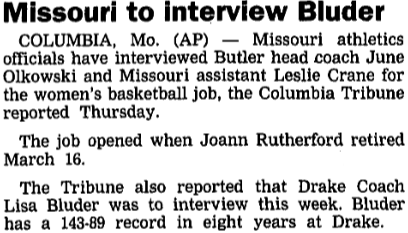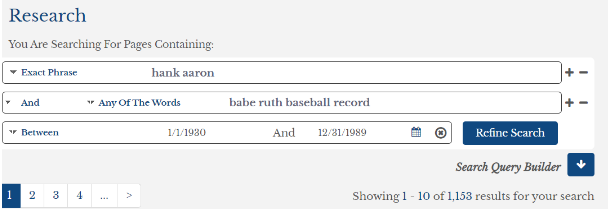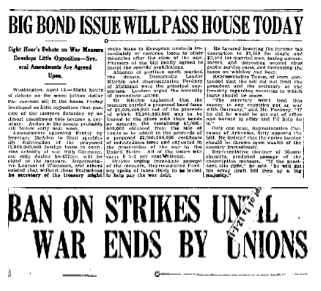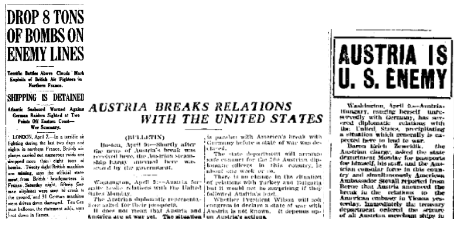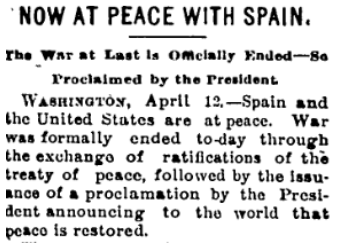What do black holes, World War I, and the Iowa Hawkeyes all have in common? The answer is important historical events that happened during this week in the past! Using content from Advantage Archives and their various partners, I have provided a diverse spread of historical events that happened during this week, years ago. Not only will I be talking about these important events, but I will also be sharing how I found information on them and techniques you can apply to your own research.
The Digital and Information Age (2000s – Present): First Ever Photo Taken of a Black Hole, 2019
The Event Horizon Telescope Project set out in 2012 with the purpose of observing the natural environment around black holes, and in 2019 they produced the first-ever image of one. The Black hole is a giant concentration of matter that is so dense not even light can escape its pull. They have extremely strong gravitational pulls and are one of many cosmic objects that we don’t have very much knowledge about. This is why the ability to produce a photographic image of one is such an important milestone in space exploration and research. The event Horizon telescope project was comprised of around 200 scientists, and it took years to produce the image. They were able to create it based on data they had collected two years prior from a variety of observation disks.
To find this piece, I went to the Cedar Rapids Public Library CHA. I started by searching for the word Black Hole, some buzz words like “image” and “first”, and narrowed the dates from January 1st, 2015 to the present. This produced about 18 results, but not all of them were relevant. I noticed many of them were about cameras, so I changed it to the exact phrase “black hole” and excluded the word “pinhole”. This produced 5 results that were all relevant to what I was looking for.
The Late 20th Century: Cold War and Globalization (1980s – 2000s): Lisa Bluder Interviewed for Missouri, 1999
It seems everyone these days is talking about Caitlin Clark and the Iowa Women’s Basketball Team, and for good reason. Under Coach Lisa Bluder, the team has made incredible strides and has drawn millions of viewers to women’s basketball. This week in the year 1999, it was reported that Missouri would interview June Olkowski, Leslie Crane, and Lisa Bluder for the head women’s basketball coach position. At this time, Bluder was coaching at Drake and had a 143-89 record in her eight years coaching their women’s team. However, Mizzou instead chose to hire Cindy Stein and the Hawkeyes are incredibly blessed that Bluder wasn’t hired. The next year, Bluder was hired as the Hawkeyes Women’s Basketball Coach, and she has since built up an incredible program that has taken the world by storm.
Post-War Prosperity and Challenges (1945 – 1980s): Hank Aaron Breaks Home Run Record, 1974
Hank Aaron, a player on the Atlanta Braves, made it his goal to beat the Home Run Record previously set by Babe Ruth. It took him 20 years, and almost 3,000 major league baseball games. Going into that year’s season, he was only one home run away from breaking it. He held back to save it for when they played the Los Angeles Dodgers at home in Atlanta. On April 8th, 1974, in the fourth inning, Aaron hit his 715th home run, breaking the record. The article describes Aaron as being relieved to have finally broken the record. However, he also mentions that he has already begun thinking about which record he plans on breaking next.
The World Wars Era (1914 – 1945): United States Prepares For War, 1917
The United States officially declared war on Germany, marking their entry into World War I on April 6th, 1917. Following suit, on this week in 1917, the United States began to prepare to enter the War in Europe. I decided to do something a little different and showcase this event through a variety of articles I found in hopes of displaying the process of joining the war through a first-hand historical lens.
One of the first initiatives the United States took was to address the economic impacts of a war on the country. Congress began to discuss war bonds and pass plans about them. They attempted to create more economic stability by banning worker strikes during the war. While this didn’t succeed legally, it is a good reflection of what the government thought it needed to do to ensure stability during this time.
There were also many reports involving boats. I find it interesting to see the development of knowledge on the impact boats would have on the course of the war. German U-boats played a huge role in the German war strategy, and the American forces had to match that. During this first week, reports of these U-boats had begun to come in, and the concern about them had begun to grow. The United States began to realize they would need their own ships to combat the German fleet and started to make plans to build a larger fleet of their own.
Worries began to grow about how they would support this war. One major concern was production of resources. Food production and ammo production were both major factors in American success. One specific issue I saw was about the production of wheat. The weather was hindering the production of wheat and concerns followed on the impact it would have on the war effort.
Many newspapers at this time began to have sections devoted to updates on the war. They would report not only on US efforts but also on the international news and events that had happened. When Austria broke their connection to the United States, they immediately began to be referred to as the enemy. Any report on Austria that followed was less than kind towards their actions, as they now were a part of the opposing side. This shows how the war became a central part of Americans’ daily life, and how attitudes towards the “enemy” showed up almost immediately.
The Industrial Revolution to the Early 20th Century (1824 – 1914): Spanish American War Officially Ended, 1899
While the Treaty of Paris was signed on December 10, 1898, it wasn’t until April 11, 1899, that both countries ratified the treaty and there was officially peace between Spain and The United States. The Spanish-American War lasted from April to July of 1898 and was caused by the Cuban independence struggle. The United States was not originally part of the conflict, but Congress began to push them to intervene, and so they did. I find it interesting to reflect on past wars and how they impacted future wars. The United States gained a lot of insight from this war that may have helped them in the coming years when entering World War I.
Not every week in history may have the biggest historical events, like the assassinations of world icons or huge natural disasters. However, every week has some event that has impacted someone, and you can learn so much from reading about even the smallest local news. So much focus is put on the biggest things, that often the more nuanced information is overlooked, and that’s why these weekly pieces are so important. Join me next week to explore more of history’s hidden gems and timeless tales!



